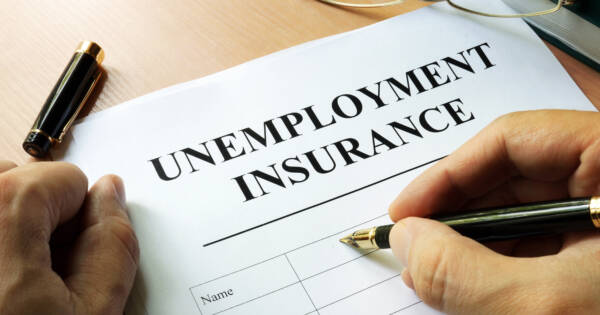Whether you are looking for homeowner’s, life, auto, renter’s insurance (or something a bit more random), it makes sense to get the best insurance policy for you. That also means getting it at the right price. Making sure you have the appropriate insurance is vital, since it will determine the type of protection you receive. Different policies have different costs. You certainly don’t want to be overpaying for coverage you don’t really need. So, how do you find good value in your insurance policies? How do you make sure your assets are properly covered? Here are a few tips to help make sure you are getting the right insurance policy for your needs.
Figure Out Your Needs
First of all, figure out what type of coverage you need. For example, if you need auto insurance, you’ll want to understand your state’s minimum coverage requirements. Once you know that, determine if you need more secure coverage that exceeds the minimum. In general, you will pay extra to increase your peace of mind. However, it’s always a good idea to insure yourself against a catastrophe that has the potential to wipe you out financially. Yes, the chances of that happening are always low. However, you still want to protect yourself.
Same with life insurance. You want to figure out how much money your family needs to survive, if you cannot work for whatever reason. A common starting point is making sure your life is insured for six-to-ten times your annual salary. Remember that your individual needs may vary. The size of your mortgage, investments, or the need to pay for your kid’s college educations may all factor into your decision. Spend some time tracking your regular expenses and any other larger, one-time costs. Start from that point.
Look at Every Type of Insurance Closely
When you get homeowner’s coverage, you want to be able to replace your home (and its contents) in the event of major damage. Check with your mortgage broker. Most mortgage lenders will require a minimum coverage amount just to approve a mortgage. They may also require you to maintain that coverage as long as you own money on the house.
Health insurance coverage should be what you need to take care of your health needs. I have the highest deductible plan because I only want to insure against catastrophic needs. Everything else I pay out of pocket. I was really surprised the other day. I was running some numbers and realized I’ve already saved over $100,000 in health care costs in my working career (versus the average worker who pays for a low deductible plan).
Don’t get all excited and change your plan just yet though. If you don’t have enough money to cover any out-of-pocket costs before you hit the deductible, or if your family tend to use more of your healthcare coverage, then this may not work for you financially. Determine your own needs, so that you have a good idea of your starting point and you know how to compare your options.
Shop Around
Always shop around for the best rates next. Remember that insurance is just like any other product or service you buy. As you do, make sure you are comparing apples to apples. For example, a car insurance policy with a $500 deductible shouldn’t be compared to one with a $2,500 deductible. Make sure you ask for quotes based on your specific needs, not just general policy details. Get these quotes in writing. You should also find out if there are any contingencies that could result in higher rates. Sometimes life insurance is contingent on a medical exam. If they find you have high blood pressure (for example), your quoted premium could end up higher.
You can favor companies that give you the cheapest quote. However, don’t let price be the only thing factoring into your decision. Sometimes in insurance, as with most other things, you truly get what you pay for. Those ultra cheap insurance policies might not provide much actual coverage or be very helpful in providing you with support when you need to make a claim.
 Shutterstock
ShutterstockCheck Credentials
It’s also a good idea to make sure that you check the credentials of the agent or broker you are using before you make the final decision. You want to make sure that they are properly licensed in your state.
It’s not just the broker either. You should also take the time to double-check that the insurance company is also properly licensed. Make sure that you are working with legitimate representatives and that you aren’t getting scammed. You’re going to be handing over plenty of personal details, depending on the type of insurance you’re getting. We’re talking medical history, banking and credit information, home addresses, SSN numbers, etc. You better be sure you aren’t just giving permission to someone to charge you for something you don’t want to purchase.
Investigate the Company’s Stability
This is especially important with life insurance policies. Some companies are really bad with claims, but at least they are still in business. In the case of life insurances, what if you pay years of premiums only to suddenly find out the company has gone broke? What does that mean for the coverage you were counting on?
Before you get a life insurance policy, make sure that the company is covered by your state’s guaranty fund. That will help ensure you don’t suddenly end up losing your benefits. As for all insurances, you should look into the ratings of the company. You can see ratings of insurance companies from Moody’s or Standard and Poor’s to get a general idea of how stable the company is — and whether it’s likely to be around to pay claims.
Read Reviews
Those two review agencies will only rate the big guys, though. If you are trying to save by going with a smaller auto insurer, then the online reviews will help. You can learn what others think about the company via online reviews. You want to deal with a company that has fewer complaints and seems to offer good customer service. While almost every insurance company has complaints, you might want to consider a company that doesn’t have as many as its competitors.
With a little savvy shopping around, you can get an insurance policy that offers you a reasonable rate for a good policy. Even better, you can get it from a company that you know will back you up in disaster strikes.
Don’t Underestimate The Impact of Reevaluating
Insurance is one of those things that most of us recognize that we need. However, once we’ve picked a policy and starting paying the premiums, we mostly forget about it. You get your coverage and go on your way. You probably don’t think about your insurance at all, unless you find yourself needing to make a claim for some reason.
This isn’t always the best approach if you want what’s best for your pocketbook, though. The insurance coverage you needed five, three, or even one year ago might not be the same as what you need today. You should keep evaluating your insurance coverage and needs on a regular basis if you want to continue receiving the best possible coverage and prices.
Price Shopping Will Save You Money
The first reason to evaluate your insurance coverage on a regular basis is so that you can save money. You might be surprised to find that you can pay less if you shop around continuously.
Start with your current insurer. Ask about discounts, programs, or for a evaluation. (That could mean medically for life or health insurance, or asking them to check your updated driving record for auto insurance.) Then compare that price to quotes from other insurers. If you find the same coverage for a lower price, go back to your original insurer and ask them to match it. They probably will. But if they don’t, go ahead and make the switch. My own insurance broker told me that as long as I have something written, he can always get the insurers to match the prices. So always shop around!
Take the Opportunity to Reevaluate Your Needs
In some cases, you can save by changing your coverage or your deductible. Take your car insurance, for example. If the car is older and completely paid off, you may no longer need collision coverage anymore. If you do get into an accident, the car isn’t worth fixing anyway. So why keep paying insurance meant for that? You can also increase your deductible — the amount of money you have to pay out-of-pocket before the insurance company covers the rest. Raising your premium from $500 to even $1,000 or $1,500 can save you on premiums. Just make sure that you actually afford to pay that deductible in the event of a claim.
Remember how I said I’ve saved a ton with health insurance with a high deductible plan? A high-deductible plan can save you hundreds of dollars a month. That really adds up over time. Look at your own insurance history and how often you’ve needed to make a claim. Raising the deductible only works if your emergency fund can handle those extra out-of-pocket expenses. Don’t raise your deductible if you’re going to struggle to cover those costs.
Get the Right Coverage
Don’t forget that our needs change over time either. Some homeowners discover that there are limits to their home insurance. It might not cover upgrades, additions, or even value appreciation. That means if something happens to your house, you may not have all the coverage you really need.
On the other hand, some continue to pay for coverage they don’t need at all. You want to make sure that your assets are properly covered and that you aren’t paying for “extra” coverage. Evaluating your coverage regularly means that you can improve the effectiveness of your policies. Don’t forget to change your life insurance policies as your income rises and your family grows.
 Shutterstock
ShutterstockSometimes You May Need Additional Policies
You should also consider whether or not you need additional policies. Use this regular evaluation period as a way to determine whether you need to add something. Consider an umbrella policy if you have seen an increase in income and your current liability coverage isn’t sufficient.
If you’re worried about being injured on the job, extra short- or long-term disability coverage might make sense. While you don’t want to waste money on unneeded policies, it’s important that you get the policies that you need so that you are properly protected.
The Bottom Line
I can’t stress this enough, so I’m going to repeat it here. Everybody, in aggregate, will lose money paying for insurance. After all, insurance companies are a for profit business. Their profits come directly from the difference between how much they collect in premiums and how much they have to pay out for claims. This is why some insurance companies have the reputation for being very stingy when it comes processing claims.
However, insurance is still needed. Without it, there are certain events that could financially ruin you. Health insurance will help support you in the event of a deadly illness. Home insurance will cover damages to the largest investment of your life. Even something like renter’s insurance, pet insurance, or laptop insurance can save you from large, unexpected bills.
Don’t get caught with the wrong insurance policy. And definitely don’t pay too much. Make it a point to review your coverage every year and then update your policies as needed. That way, you can save money when you can and ensure that your finances (and your assets) are protected.








